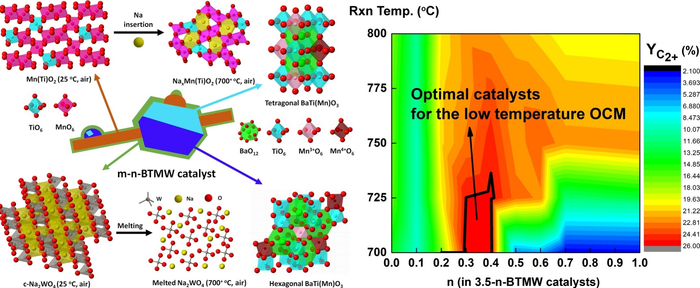Korea Institute of Science and Technology (KIST) President Dr. Yoon Seok-Jin said a research group led by Dr. Jeong-Myeong Ha from the Clean Energy Research Center has proposed a process technology and a catalyst to remove hydrogen. sulphide, a toxic substance, during the process of producing ethylene from the methane contained in the biogas.
Biogas, produced by microorganisms found in livestock manure, food waste and sewage sludge, consists of methane which can be used for affordable energy such as electricity generation, heating and cooling. city gas.
Methane can get enormous added value if it is transformed into ethylene, a basic raw material for industries, via chemical reactions. Ethylene is a normal non-petroleum product that has the ability to reduce greenhouse gases.
The research group has developed a process technology in 2021 that helps produce ethylene from biogas with catalysts. Besides methane, biogas seems to be very beneficial and also consists of a considerable amount of toxic hydrogen sulfide. This is difficult to remove and interferes with the catalytic reaction in the production of ethylene.
The technology developed streamlines ethylene production by oxidizing and removing hydrogen sulfide during the production process.
In addition, a catalyst was developed by the researchers to improve the reaction activity of ethylene production from methane and biogas.
This catalyst was highly resistant to hydrogen sulfide, eliminating the need to remove hydrogen sulfide from biogas, while energy consumption could be reduced by lowering the operating temperature from 800°C to 700°C through increased reaction activity. Thanks to such a reaction, it is possible to generate ethylene directly from biogas consisting of hydrogen sulphide.
Biogas is already produced in large quantities in Korea, and if biogas is used as a feedstock for the chemical industry rather than just for heating, biogas producers struggling to achieve carbon neutrality will have a larger market and can supply new raw materials without greenhouse gas emissions.
Dr Jeong-Myeong Ha, Clean Energy Research Center, Korea Institute of Science and Technology
“This technology will attract the attention of related companies as it can utilize not only biogas but also methane generated from various wastes such as plastics.concludes Dr. Jeong-Myeong Ha.
Journal reference:
Do, L, T., et al. (2021) Hybrid catalysts containing Ba, Ti, Mn, Na and W for the low temperature oxidative coupling of methane. Applied Catalysis B: Environment. doi.org/10.1016/j.apcatb.2021.120553.
Source: https://www.nst.re.kr/nst_en/






More Stories
rice production process in east China’s Jiangxi – Xinhua English.news.cn
Michelin describes ‘transformational changes’ to tire factory operations
Cellforce finalizes the electrode coating production process